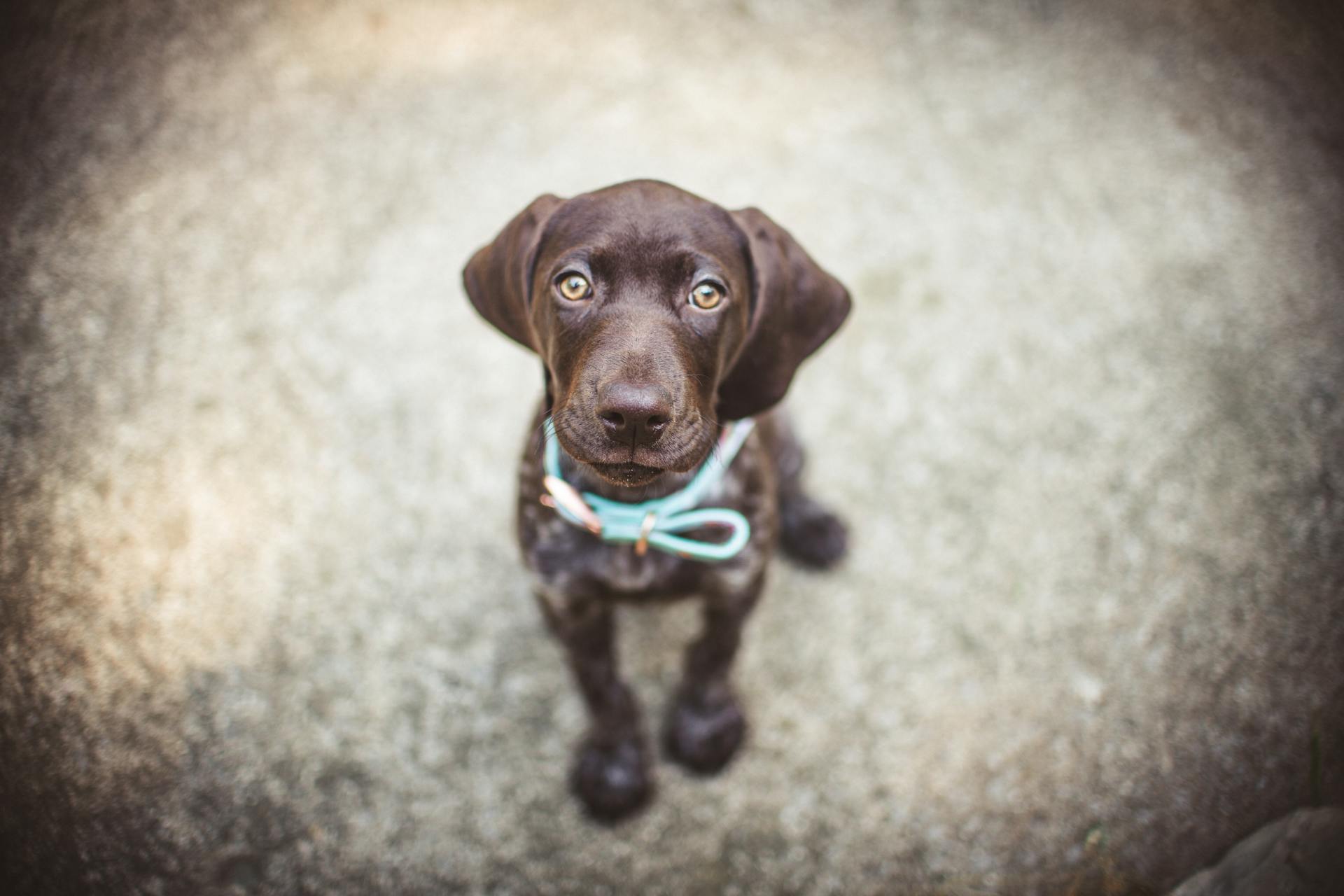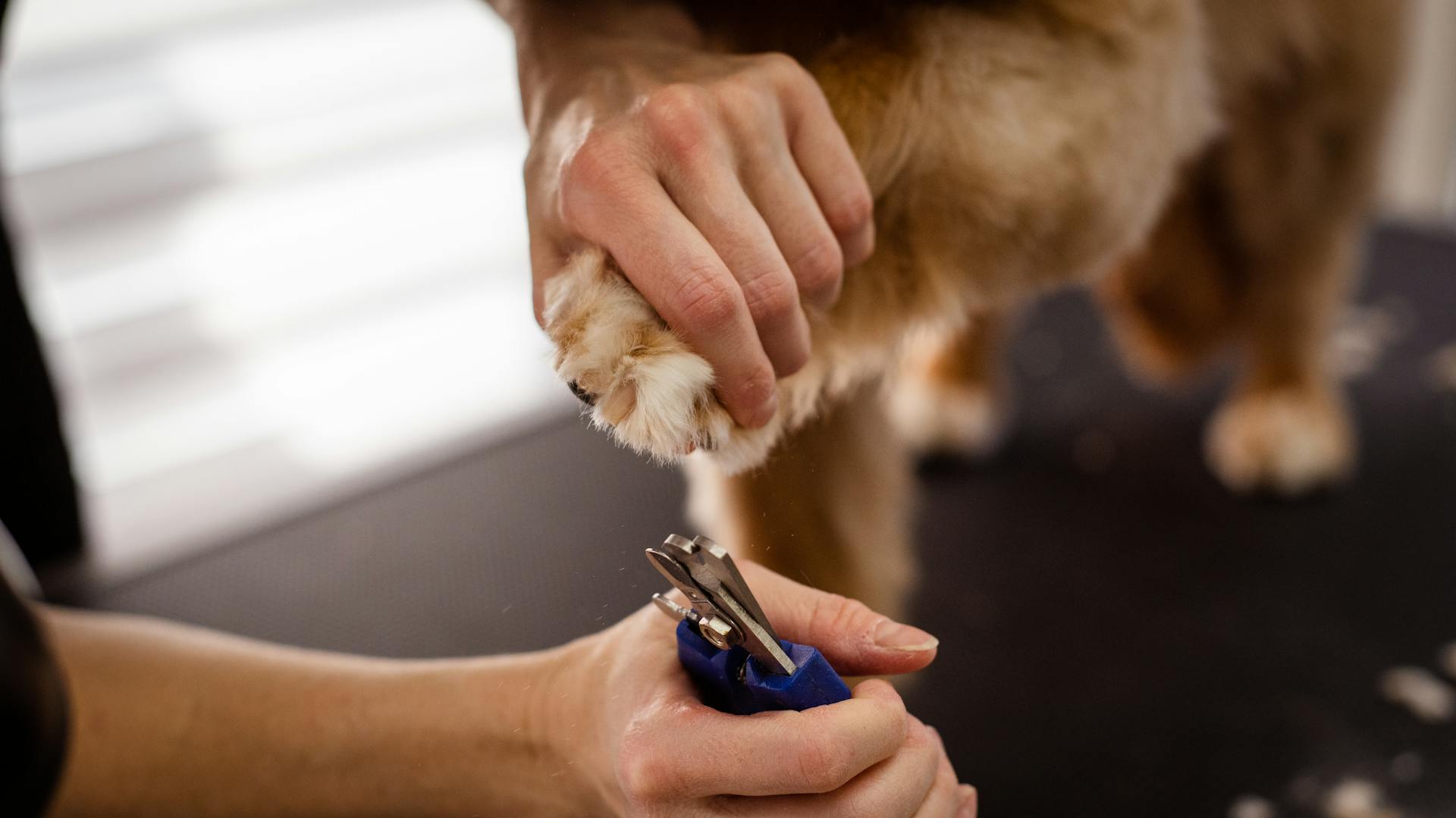
Dachshunds are often stereotyped as high-maintenance pets, but is this reputation justified? They require regular exercise to stay healthy, with a minimum of 30 minutes of walking per day recommended.
Their short legs may not be built for long-distance running, but they do need regular physical activity to prevent obesity and related health issues.
Dachshunds are prone to back problems due to their unique body shape, and this can lead to costly veterinary bills if not addressed properly.
They are generally low shedders, but their coats do require regular grooming to prevent matting and tangling.
Their independent nature means they can be stubborn at times, making training a challenge for some owners.
Characteristics and Temperament
Dachshunds are known for their bold and curious nature, which can sometimes get them into trouble. They're intelligent, independent, and sometimes stubborn, making training a challenge.
Their small size belies their tenacious and playful personalities. Dachshunds are naturally courageous and unafraid to take on animals bigger than themselves, but they may be aggressive towards other dogs and strangers.
Consistency is key when training a Dachshund, as they can be resistant to change. They respond well to positive reinforcement and rewards, making them wonderful family dogs.
Dachshunds can be good with children, but it's essential to supervise interactions between young kids and dogs. Their small size and potential sensitivity to rough handling make them more suitable for families with older children.
Here's a breakdown of the different Dachshund temperaments:
Overall, Dachshunds are wonderful companions, but they do require patience and persistence when it comes to training. With the right approach, they can thrive as loyal and loving family pets.
Care and Maintenance
Dachshunds have relatively simple care and grooming needs, but they do require regular baths and nail trims.
Their nails should be trimmed monthly to prevent overgrowth, which can be painful for your dog.
Dachshunds with long hair benefit from being brushed a few times each week to prevent matting and tangling.
Regular exercise is also crucial for Dachshunds, who should get a moderate walk twice a day to burn off energy and maintain muscle strength.
Regular veterinary visits, at least once a year, will also play a vital role in preventive care for your Dachshund, including full-body exams and dental cleanings.
Care Tips
Regular baths are a must for Dachshunds, but they don't need to be done too frequently.
Their nails should be trimmed monthly to keep them healthy and prevent overgrowth.
Dachshunds with short coats can be gently wiped clean with a wet towel in between baths, but longhaired and wirehaired Dachshunds require more attention.
Longhaired Dachshunds benefit from being brushed a few times each week, while wirehaired Dachshunds need their coats plucked or stripped throughout the year.
Beard and eyebrow trimmings are also necessary for longhaired and wirehaired Dachshunds.
A moderate walk twice a day can help keep your Dachshund happy and healthy by burning off energy and maintaining muscle strength.
Broaden your view: Dapple Wirehaired Dachshund
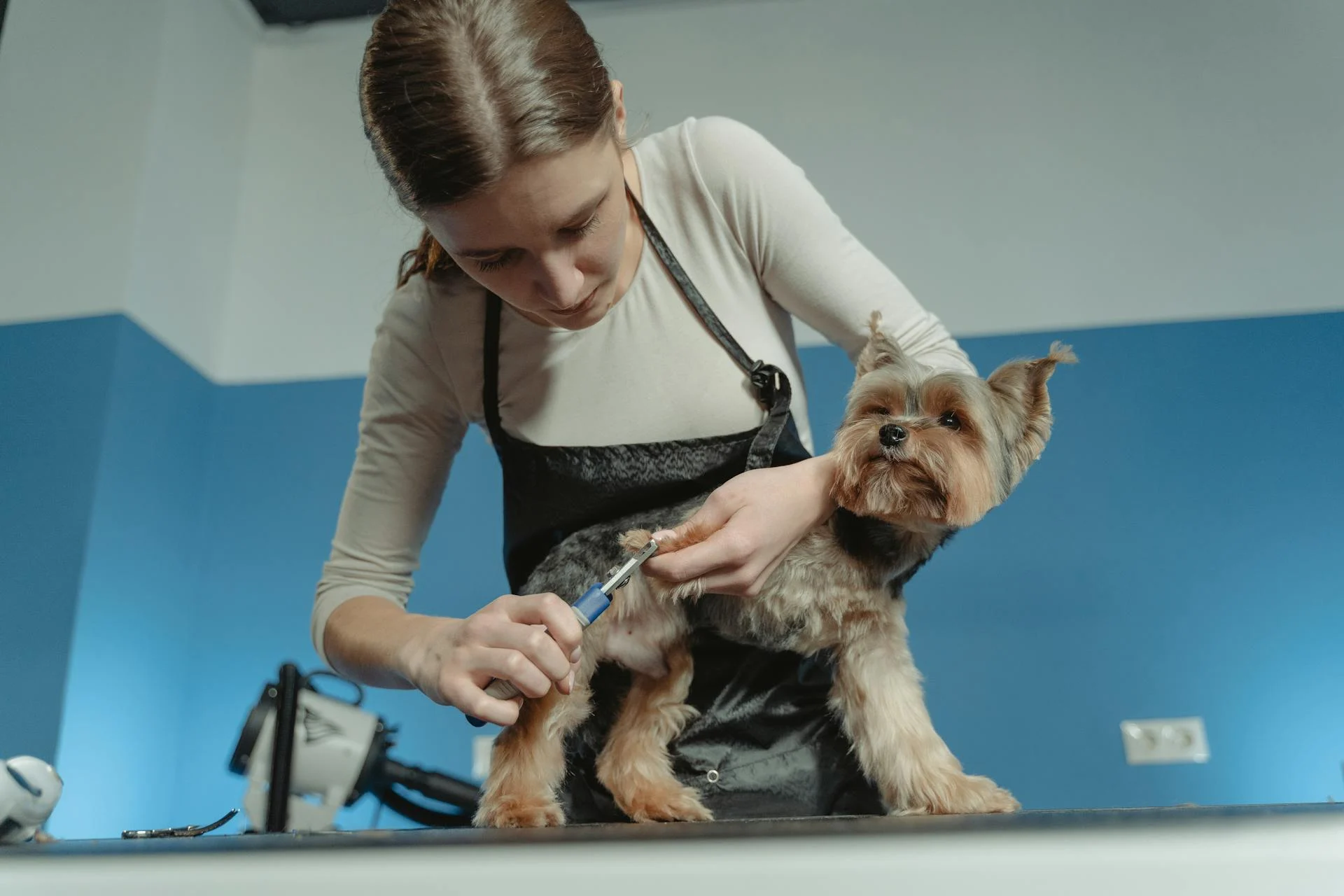
Regular veterinary visits, at least once a year, are crucial for preventive care and to help your Dachshund live a long and healthy life.
You should also regularly check your Dachshund for fleas, ticks, and worms, especially if they spend a lot of time outside, and use preventive treatments to safeguard them from potential diseases.
Affording a Pet
Owning a Dachshund can be a costly affair, with annual costs ranging from £1500 to £3700, excluding the purchase price. Research by Household Pets in 2023 showed that small pedigree dogs can cost upwards of £1500 per year to own.
The purchase price of a Dachshund puppy itself can range from £700 to several thousand pounds. If the price is very low, it's best to ask yourself why.
You can expect to pay between £40 and £70 for vaccinations against diseases such as canine distemper, parvovirus, hepatitis, and leptospirosis in the first year.
Other initial costs include bedding, toys, feeding and water bowls, a collar and lead, an indoor crate, grooming equipment, poo bags, and third-party insurance, which can add up quickly.
Food will be your main regular expense, with costs ranging from £40 to £50 per month, depending on the brand you choose.
A good breeder will provide 4 weeks of insurance cover, but it's recommended to consider taking out healthcare insurance for your pet, with annual premiums starting at £360 according to Consumer Intelligence data.
Average vet bills for someone without insurance can be around £800, and surgery for back disease can cost anywhere from £6000 to £10000.
Additional costs to consider include doggy day-care, dog-walking, and boarding kennels, which can vary depending on your family circumstances.
Health and Nutrition
Dachshunds require a balanced diet to stay healthy, and it's crucial to prevent them from becoming overweight to avoid putting extra strain on their elongated backs.
Their diet should be high-quality and nutritionally balanced, and the serving size will depend on their age, activity level, size, and other factors, so it's best to ask your veterinarian for a recommendation.
It's also essential to avoid table scraps or give them in very small amounts to maintain a healthy weight.
Worth a look: What Size Crate for a Mini Dachshund
Health Problems to Watch for
Dachshunds are prone to a range of health issues due to their unique physical characteristics and genetic predispositions.
One of the most common health problems in Dachshunds is intervertebral disc disease (IVDD), which affects approximately 25% of all breed members. This condition can be extremely painful and may even require surgery.
Their short legs can't provide sufficient support for their long back, making them 11 to 12 times more prone to IVDD than any other dog.
A Dachshund's floppy ears can increase the risk of ear infections, which can be painful and uncomfortable for your pet.
For your interest: Dapple Dachshund Health Problems

Some Dachshunds are also more likely to develop hearing and vision loss if they have the merle gene, which causes a dappled coat in some colors of the breed.
Other health issues common in Dachshunds include patellar luxation, a knee injury that can cause pain and damage to the surrounding bones and muscles.
Here are some of the most common health issues to watch out for in Dachshunds:
- Epilepsy
- Congenital heart defects
- Cushing’s disease
- Thyroid problems
- Various eye conditions
- Certain allergies
- Urinary diseases
- Itchy skin conditions
Diet and Nutrition
Diet and nutrition play a crucial role in maintaining your Dachshund's overall health.
Preventing your Doxie from becoming overweight is essential, as it can lead to common health issues and put additional strain on their elongated back.
A healthy weight can help ward off health issues in dogs, and it's especially important for Dachshunds due to their unique spinal structure.
Ask your veterinarian for their recommendation on how much food your Dachshund needs to eat daily, as it will depend on their age, activity level, size, and other factors.
Offering high-quality, nutritionally balanced food in the suggested serving size is key to keeping your Dachshund healthy.
Avoid giving your pet table scraps or giving them in very small amounts, as they can be detrimental to their health.
Suggestion: Food High in Iron for Dogs
Grooming
Dachshunds are relatively low-maintenance when it comes to grooming, especially the smooth-coat variety. They shed moderately and require weekly brushing to keep their coat in good condition.
Smooth-coated Dachshunds have a short and smooth coat that's relatively low-maintenance. They only need occasional nail trimming.
Longhaired and wirehaired Dachshunds require more frequent brushing to prevent matting and maintain their coat's texture. Longhaired Dachshunds may need daily brushing, depending on the thickness of their coat.
Here's a quick rundown of the grooming needs for different Dachshund varieties:
Regular tooth brushing is also essential for Dachshunds, ideally twice daily with a dog-specific toothpaste. If that's not possible, just do it as often as you can.
Training and Exercise
Dachshunds can be a handful when it comes to training and exercise. They're intelligent, but also stubborn, which can make them difficult to train. Consistency and patience are crucial when working with a Dachshund.
To keep your Dachshund happy and healthy, they need regular physical activity. Moderate walks twice a day should be enough to keep them fit and build strong muscles. However, it's essential to avoid activities that can put strain on their backs and knees, such as running up and down stairs or jumping on and off heights.
You might enjoy: When Do Dachshunds Calm down
Here are some specific exercise guidelines for Dachshunds:
- Dachshunds require around 30 minutes to 1 hour of exercise per day.
- Daily walks, playtime in a secure area, and interactive toys can provide the necessary exercise and mental enrichment.
Remember, Dachshunds are prone to distractions, so it's best to train them using positive, reward-based methods. With patience and consistency, you can teach your Dachshund to behave and respond to commands.
House Training Challenges
House training a Dachshund can be a real challenge due to their stubborn nature. It's crucial to remember that training this breed can be very difficult.
Expect to spend a lot of time teaching your Dachshund even the simplest things, as they can be hard to train. You might have to repeat the same lesson multiple times before they get it.
As a dog owner, it's essential to be patient with your pup, as they require a lot of time and effort to train. Don't expect immediate results, as it may take days to teach them just one thing.
If you're not patient, you might lose your temper, which can hinder the training process. Give yourself and your dog some time to learn and grow together.
Suggestion: Crate Training Dachshund
Training and Exercise
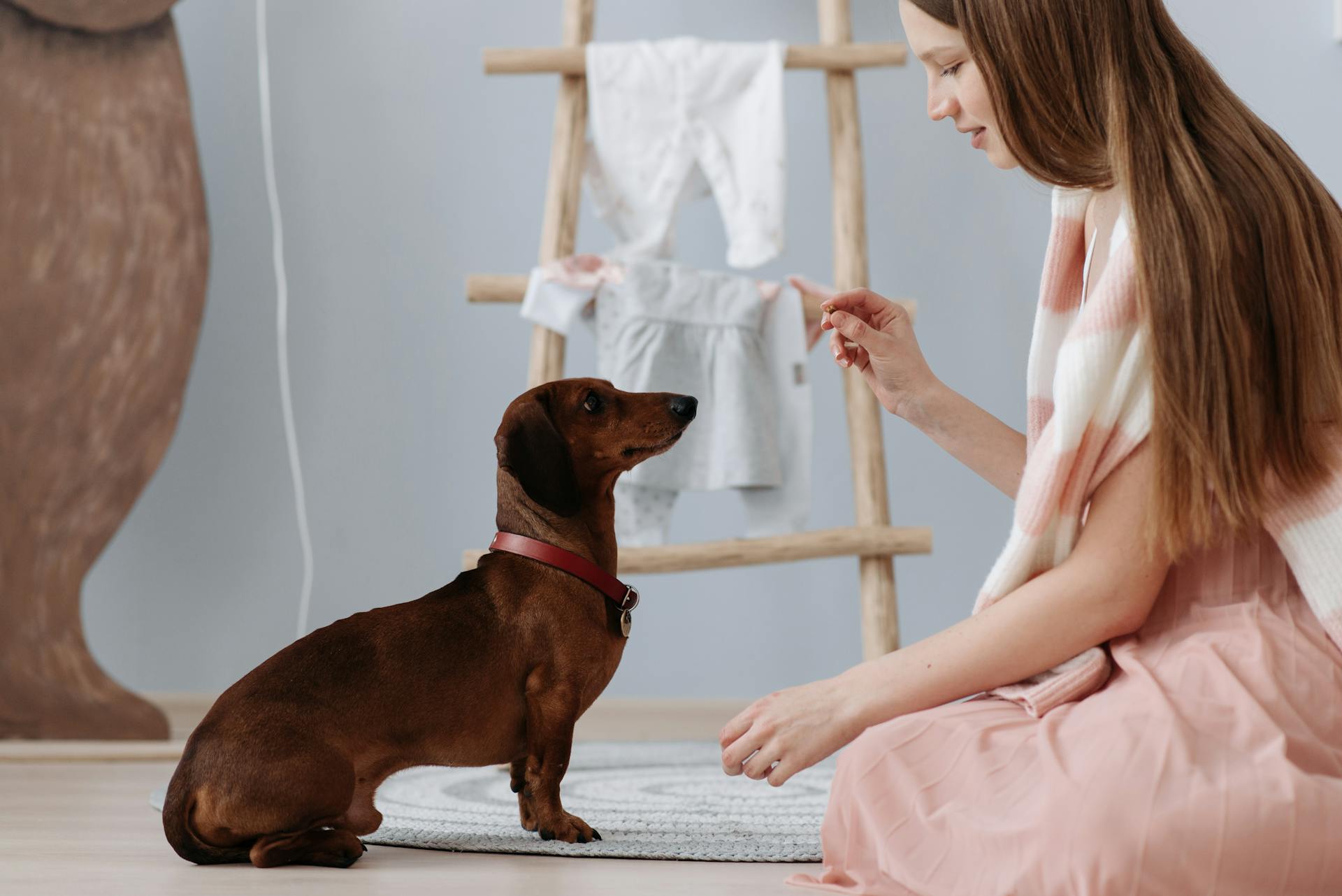
Training a Dachshund requires patience and consistency, as they can be stubborn and independent thinkers.
Their strong prey drive and excellent sense of smell can make them easily distracted, so it's essential to keep training sessions short and engaging.
Dachshunds need regular physical activity to stay fit and build strong muscles, but running up and down stairs and jumping on furniture should be avoided to prevent injuries.
Moderate walks twice a day should be enough to keep them active.
Dachshunds have moderate exercise needs and typically require around 30 minutes to 1 hour of exercise per day.
To provide the necessary exercise and mental enrichment, daily walks, playtime in a secure area, and interactive toys can be used.
Dachshund puppies have different exercise requirements and should engage in shorter play and exercise sessions to avoid excessive strain on their developing bodies.
Here's a rough guide to Dachshund exercise needs:
As Dachshunds grow, their exercise needs will increase, but it's essential to remember that every dog is different, and their needs may vary.
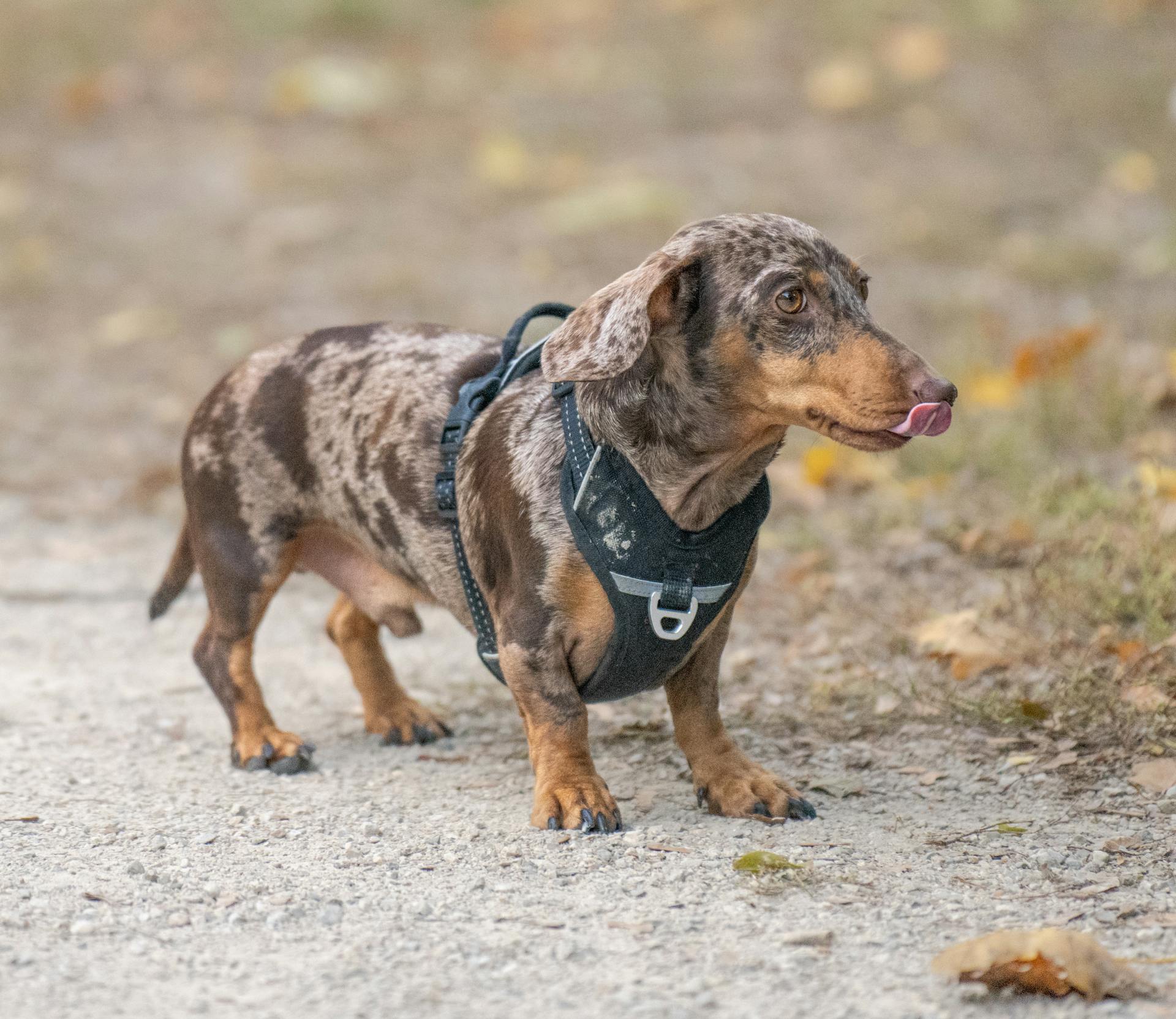
Consistency and patience are crucial when training a Dachshund, and with positive reinforcement techniques, they can be trained successfully.
Early socialisation is also vital for Dachshunds to help them develop good manners and interact well with people and other animals.
Remember to keep training sessions fun and interesting to prevent boredom and maintain their attention.
Frequently Asked Questions
What is the downside of Dachshunds?
Dachshunds are prone to back-related issues due to their unique physical structure, which can lead to mobility loss and paralysis. This breed-specific health concern is a significant downside to owning a Dachshund.
Is Dachshund good for first time owners?
Miniature dachshunds can be a great fit for first-time owners with plenty of time and space, but they require attention and exercise to prevent destructive behaviors. With the right care, they can thrive as a loving and loyal companion.
Featured Images: pexels.com
